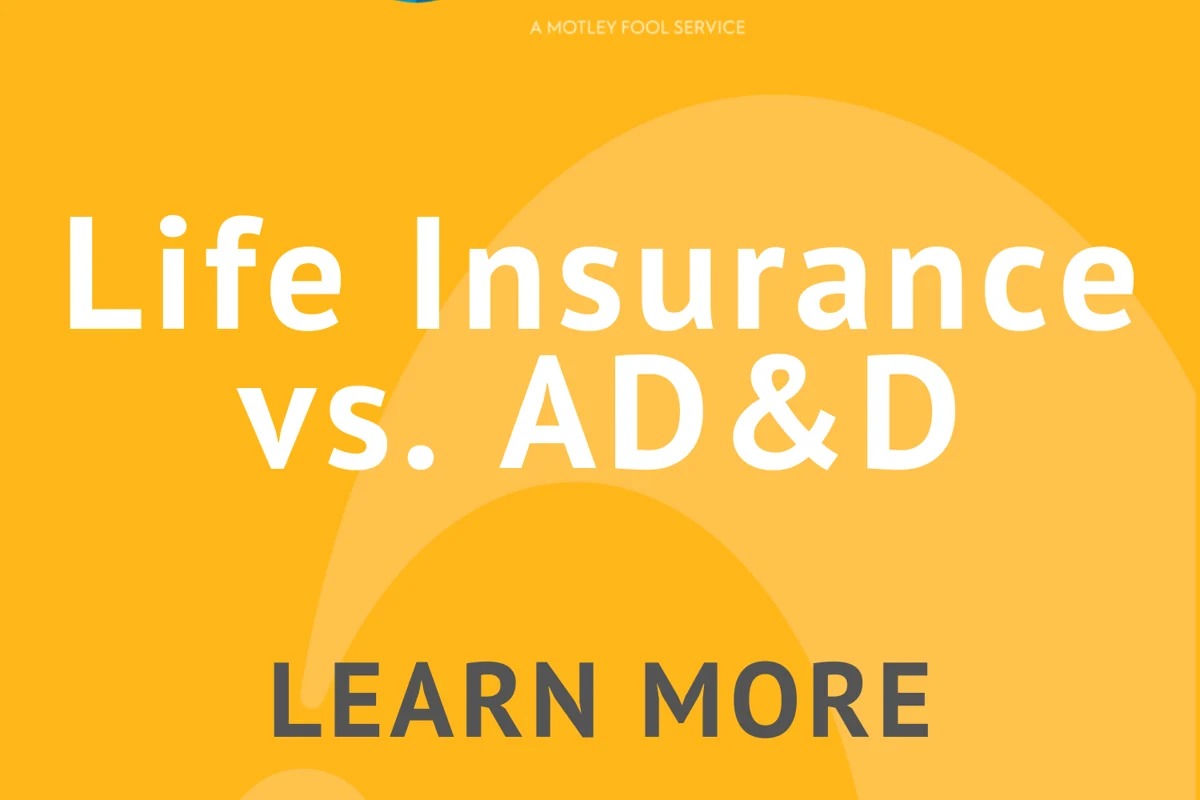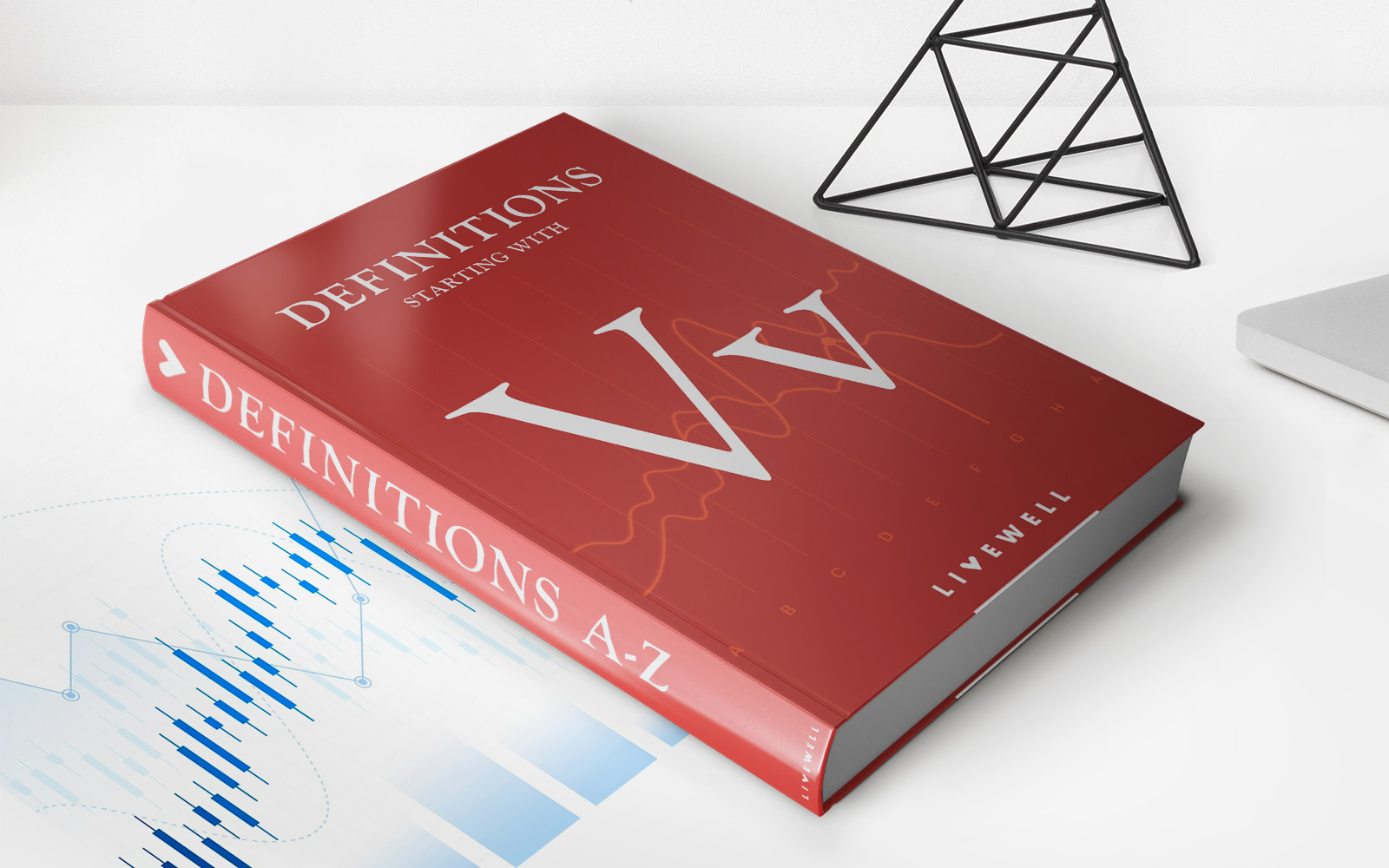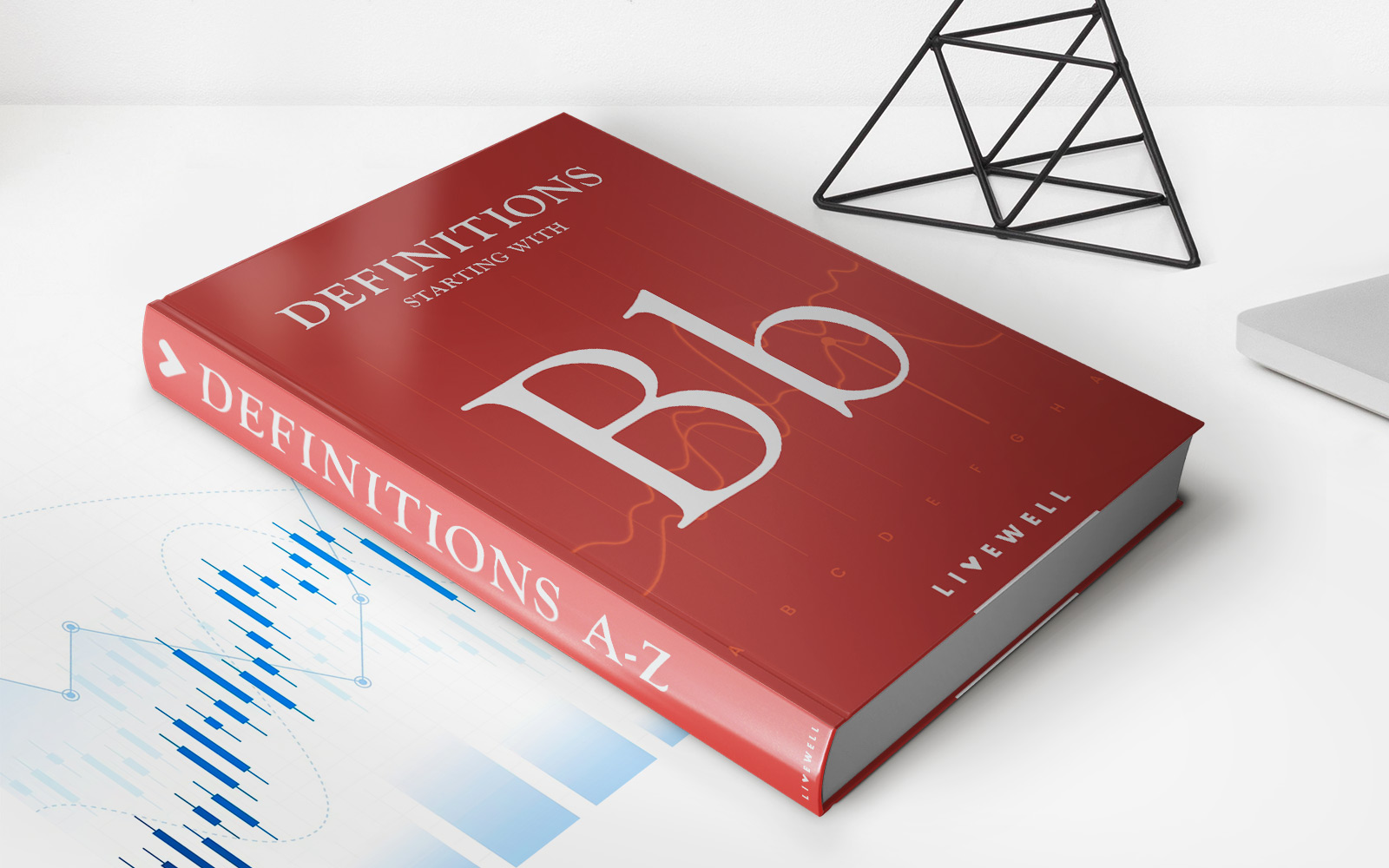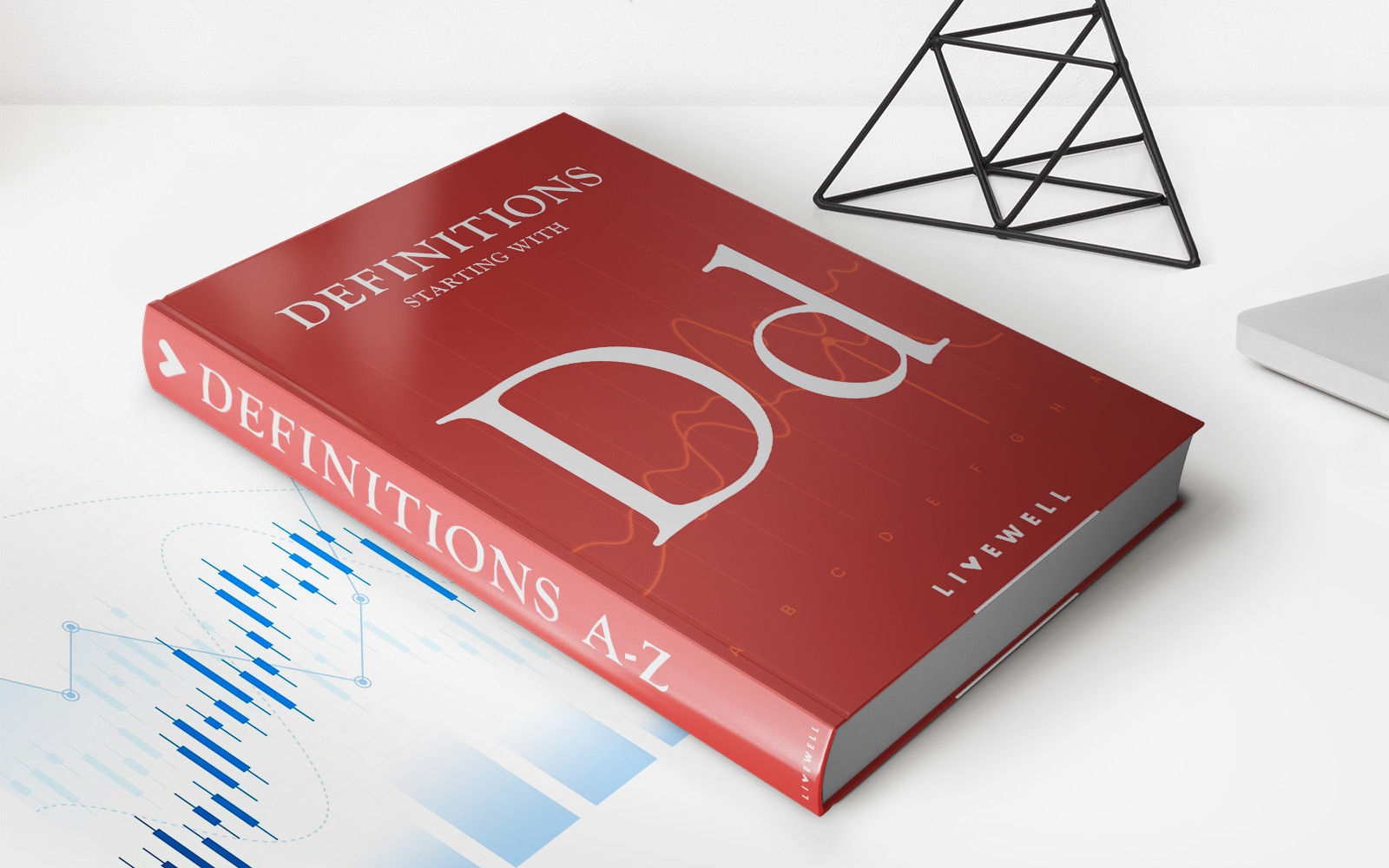

Finance
What Is AD&D Insurance Vs. Life Insurance?
Published: November 6, 2023
Learn the difference between AD&D insurance and life insurance to make informed financial decisions. Explore the benefits and coverage options for your peace of mind.
(Many of the links in this article redirect to a specific reviewed product. Your purchase of these products through affiliate links helps to generate commission for LiveWell, at no extra cost. Learn more)
Table of Contents
Introduction
Welcome to our comprehensive guide on understanding the differences between Accidental Death and Dismemberment (AD&D) insurance and Life Insurance. When it comes to protecting our loved ones and securing our financial future, insurance plays a vital role. However, the world of insurance can be complex and confusing, with various types of coverage available.
Accidents can happen when we least expect them, and it’s crucial to be prepared for the unexpected. AD&D insurance and Life Insurance are two types of coverage that address different risks and provide financial protection in different scenarios.
In this article, we will delve into the specifics of AD&D insurance and Life Insurance, exploring their coverage and benefits, as well as the key differences between the two. This information will help you make an informed decision when choosing the right insurance coverage for your needs.
Whether you’re considering AD&D insurance or Life Insurance, it’s important to understand what each policy entails and how it can safeguard your future. So let’s jump in and explore the details of these two insurance options.
Understanding AD&D Insurance
Accidental Death and Dismemberment (AD&D) insurance is a type of insurance coverage that provides financial protection in the event of an accident resulting in death or a severe injury that causes dismemberment or loss of certain bodily functions.
Unlike Life Insurance, which provides coverage in the event of natural death, AD&D insurance specifically focuses on accidents. It is designed to provide a lump sum benefit to the beneficiary if the insured person dies or experiences a covered injury as a result of an accident.
AD&D insurance policies typically define specific covered accidents, such as vehicle accidents, falls, or workplace accidents. They may also cover incidents like loss of sight, hearing, or limbs. The policy will outline the specific benefits and exclusions, so it’s essential to thoroughly read and understand the terms and conditions before purchasing AD&D insurance.
One key feature of AD&D insurance is that it pays benefits in addition to any other life insurance or health insurance policies the insured person may have. This means that if the insured person has both AD&D insurance and a traditional life insurance policy, the beneficiary would receive benefits from both policies in the event of an accidental death.
It’s important to note that AD&D insurance does not cover deaths or injuries resulting from illness, suicide, drug overdose, or self-inflicted harm. It solely focuses on accidental causes of death or severe injuries.
Now that we have a better understanding of what AD&D insurance entails, let’s explore the concept of Life Insurance and how it differs from AD&D insurance.
Understanding Life Insurance
Life Insurance is a type of insurance coverage that provides financial protection to the policyholder’s beneficiaries in the event of the policyholder’s death. Unlike AD&D insurance that focuses on accidents, Life Insurance covers both natural causes of death and accidental deaths.
Life Insurance policies typically require the policyholder to pay premiums regularly, either monthly or annually, in exchange for a predetermined death benefit. The death benefit is the amount of money that will be paid out to the beneficiaries upon the policyholder’s death.
There are different types of Life Insurance policies available, such as term life insurance, whole life insurance, and universal life insurance. Term life insurance provides coverage for a specific term, typically 10, 20, or 30 years. Whole life insurance, on the other hand, offers coverage for the policyholder’s entire life, as long as the premiums are paid. Universal life insurance provides a combination of life insurance coverage and an investment component.
The key purpose of Life Insurance is to provide financial security to the policyholder’s dependents or beneficiaries. In the event of the policyholder’s death, the beneficiaries will receive the death benefit, which can be used to cover funeral expenses, pay off outstanding debts, maintain the family’s standard of living, or fund future expenses such as education or mortgage repayments.
Life Insurance policies may also include additional features, such as cash value accumulation or the ability to take loans against the policy’s cash value. These features can provide additional financial flexibility and options for the policyholder during their lifetime.
It’s important to note that Life Insurance policies typically have exclusions and conditions, such as a waiting period before the policy becomes active or exclusions for certain high-risk activities or pre-existing health conditions. It’s essential to carefully review and understand the terms and conditions of a Life Insurance policy before making a purchase.
Now that we have a solid understanding of Life Insurance, let’s move on to exploring the key differences between AD&D insurance and Life Insurance.
Key Differences between AD&D Insurance and Life Insurance
While both AD&D insurance and Life Insurance provide financial protection, there are several key differences between the two. Understanding these differences is crucial in determining which type of insurance coverage is best suited to your needs. Let’s explore the main differentiating factors:
- Coverage: AD&D insurance specifically covers accidents resulting in death or specific injuries, while Life Insurance covers both natural causes of death and accidental deaths.
- Benefit Amount: AD&D insurance pays out a specified lump sum benefit in the event of accidental death or injury, whereas Life Insurance offers a death benefit that is typically predetermined based on the policyholder’s coverage and premiums paid.
- Policy Terms: AD&D insurance policies may have specific definitions and criteria for what constitutes a covered accident, which can vary between policies. Life Insurance policies can be term-based, whole life, or universal life, with varying coverage durations and options for accumulation of cash value.
- Exclusions: AD&D insurance generally has exclusions for deaths or injuries resulting from illnesses, suicides, drug overdoses, or self-inflicted harm. Life Insurance policies may also have exclusions for certain high-risk activities or pre-existing health conditions.
- Premiums: AD&D insurance premiums tend to be lower than Life Insurance premiums since AD&D insurance covers a narrower set of risks. Life Insurance premiums may vary depending on factors such as age, health, coverage amount, and policy type.
- Benefit Payout: AD&D insurance typically pays out the benefit to the beneficiary in a lump sum upon the insured person’s death or dismemberment. Life Insurance policies can also provide the option for the beneficiaries to receive the death benefit as a lump sum or as regular payments over time.
It’s important to carefully consider these differences and evaluate your specific needs to determine which type of insurance coverage aligns with your financial goals and circumstances. While AD&D insurance focuses on accidental risks, Life Insurance provides broader coverage for both accidental and natural causes of death.
Now that we understand the key differences between AD&D insurance and Life Insurance, let’s explore the coverage and benefits of each type of insurance in more detail.
Coverage and Benefits of AD&D Insurance
Accidental Death and Dismemberment (AD&D) insurance provides specific coverage and benefits in the event of an accident resulting in death or severe injuries. Let’s take a closer look at the coverage and benefits offered by AD&D insurance:
- Accidental Death Benefit: If the insured person dies as a direct result of a covered accident, the AD&D insurance policy pays out a lump sum benefit to the designated beneficiary. This benefit amount is predetermined based on the policy terms and the level of coverage selected.
- Dismemberment Benefit: AD&D insurance may provide a dismemberment benefit if the insured person loses a limb, suffers the loss of sight or hearing, or experiences other covered injuries that result in a permanent loss of bodily functions. The benefit amount varies depending on the severity and nature of the injury.
- Accident-Related Medical Expenses: Some AD&D insurance policies may also cover accident-related medical expenses, such as hospitalization, surgery, or rehabilitation costs, up to a certain limit or percentage of the coverage amount.
- Double Indemnity: Many AD&D insurance policies offer a “double indemnity” provision, which means that the benefit payout is doubled if the insured person dies due to accidental causes, rather than natural causes. This provision can significantly increase the benefit amount for accidental deaths.
- No Health Questions or Medical Exams: AD&D insurance policies typically do not require health questions or medical exams, making it easier and faster to obtain coverage. This can be beneficial for individuals who may have difficulty qualifying for traditional life insurance due to health issues.
It’s important to carefully review the terms and conditions of an AD&D insurance policy to understand the specific covered accidents, exclusions, and benefit provisions. Additionally, it is essential to assess your personal risk factors to determine whether AD&D insurance aligns with your financial needs.
Now that we have explored the coverage and benefits of AD&D insurance, let’s shift our focus to understanding the coverage and benefits of Life Insurance.
Coverage and Benefits of Life Insurance
Life Insurance provides coverage and benefits to protect your loved ones and provide financial security in the event of your death. Let’s dive into the coverage and benefits offered by Life Insurance:
- Death Benefit: The primary benefit of Life Insurance is the death benefit, which is the amount of money paid out to the beneficiaries upon the policyholder’s death. This lump sum payment can be used to cover funeral expenses, pay off outstanding debts, replace lost income, or provide financial stability for the policyholder’s dependents.
- Flexible Coverage Options: Life Insurance policies come in various forms, such as term life, whole life, and universal life. Term life insurance provides coverage for a specific period, while whole life and universal life offer coverage for the policyholder’s entire life, as long as premiums are paid. This flexibility allows you to choose a policy that aligns with your financial goals and objectives.
- Policy Loans and Cash Value: Some types of Life Insurance, such as whole life and universal life, build cash value over time. This cash value can be accessed through policy loans or withdrawals during the policyholder’s lifetime, providing financial flexibility and potential growth of funds.
- Income Replacement: A significant benefit of Life Insurance is the ability to provide income replacement for the policyholder’s dependents. The death benefit can help replace lost income, ensuring that your loved ones can maintain their standard of living and meet ongoing financial obligations.
- Estate Planning: Life Insurance can also be a valuable tool for estate planning. The death benefit can be used to cover estate taxes, ensuring that your assets and wealth can be passed on to your heirs without unnecessary burdens.
- Supplemental Retirement Income: Some Life Insurance policies offer the option to receive the death benefit as regular income payments rather than a lump sum. This can be beneficial for providing supplemental retirement income to the policyholder or their surviving spouse.
Life Insurance policies may have additional features and riders that can be customized to individual needs, such as critical illness coverage, disability riders, or additional coverage for specific circumstances.
It’s important to carefully evaluate your financial situation, obligations, and long-term goals to determine the appropriate type and level of Life Insurance coverage for your needs. Reviewing and understanding the terms and conditions of the policy, including any exclusions, is essential to ensure that the coverage meets your specific requirements.
Now that we have explored the coverage and benefits of Life Insurance, let’s move on to discussing the factors to consider when choosing between AD&D insurance and Life Insurance.
Factors to Consider when Choosing AD&D Insurance or Life Insurance
When deciding between AD&D insurance and Life Insurance, there are several key factors to consider. These factors will help you determine which type of coverage aligns with your specific needs and financial goals. Let’s explore these factors:
- Understanding Your Risk Profile: Evaluate the potential risks you face. If you have concerns regarding accidents and their impact on your financial well-being, AD&D insurance may be a suitable choice. If you want more comprehensive coverage that includes natural causes of death as well, Life Insurance would be the better option.
- Purpose of Coverage: Determine your primary reason for getting insurance coverage. If your main objective is to protect your loved ones and provide financial security in the event of your death, Life Insurance would be more appropriate. If you are primarily concerned about accidents, and the financial implications they could have, AD&D insurance may be the right choice.
- Financial Needs: Consider your financial obligations and long-term goals. Assess the amount of coverage you need to ensure that your dependents are adequately protected and that your financial responsibilities, such as mortgage payments or education expenses, can be met. Life Insurance typically offers higher benefit amounts and more comprehensive coverage options compared to AD&D insurance.
- Cost of Premiums: Compare the cost of premiums for both types of insurance. AD&D insurance premiums are generally lower than Life Insurance premiums since they cover a narrower set of risks. However, the cost can vary based on factors such as age, health, coverage amount, and policy type.
- Policy Features and Flexibility: Consider the features offered by each type of insurance. Life Insurance policies often provide more flexibility, such as the ability to accumulate cash value or customize coverage with riders. AD&D insurance policies tend to have fewer options and are more focused on specific accidents and injuries.
- Existing Coverage: Evaluate any existing insurance coverage you may have. If you already have Life Insurance, you can assess whether additional AD&D insurance is necessary to address specific accident-related risks.
- Health Factors: Consider your health condition and any pre-existing medical conditions. AD&D insurance typically does not require health screenings, while some Life Insurance policies may have health-related requirements or exclusions.
By carefully considering these factors, you can make an informed decision about whether AD&D insurance or Life Insurance is the right choice for you. It’s essential to thoroughly review the terms and conditions of any policy you are considering and seek guidance from a licensed insurance professional if needed.
Now that we have covered the key factors to consider, let’s wrap up our discussion.
Conclusion
Choosing the right insurance coverage is an important decision that requires careful consideration of your individual needs and circumstances. AD&D insurance and Life Insurance serve different purposes and offer distinct benefits, so it’s crucial to understand the differences between them.
If you are primarily concerned about accidents and their financial impact, AD&D insurance can provide specific coverage for accidental death and severe injuries. It can offer peace of mind and financial protection in the event of unexpected accidents.
On the other hand, if you are seeking more comprehensive coverage that includes both natural causes of death and accidental deaths, Life Insurance is the way to go. Whether you choose term life, whole life, or universal life insurance, you can ensure that your loved ones are protected and financially secure in the event of your passing.
When making a decision between AD&D insurance and Life Insurance, it is essential to evaluate your risk profile, understand your financial needs, consider the cost of premiums, and assess the policy features and flexibility. Additionally, it’s important to review the terms and conditions of any policy you are considering to ensure that it aligns with your requirements.
Remember, insurance is a crucial tool for protecting your financial future and providing peace of mind to your loved ones. It’s advisable to consult with a licensed insurance professional who can help guide you through the process and answer any questions you may have.
In conclusion, whether you choose AD&D insurance or Life Insurance, prioritizing your financial well-being and the welfare of your loved ones is of utmost importance. By selecting the right insurance coverage, you can safeguard against unexpected events and ensure a secure future for yourself and your family.














